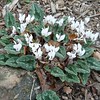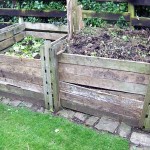Gardening Jargon Busting
Mulch
A product put around the roots and base of a plant to retain moisture and stop soil erosion. Inert material like gravel or glass beads may be appropriate for some circumstance whilst bark chippings, peat substitute or compost is often used.

Compost
This term confusingly covers two items. Firstly compost made from rotted down green and brown garden waste that contains natural nutrients and humus to retain moisture. Secondly purchased compost is a manufactured product sold in plastic bags as a growing medium. Thus there are seed composts, potting composts, general purpose composts and specialist composts for individual genus like Orchids, Cacti, Alpines etc.
Tilth
digging your soil to produce a fine crumbly top to the soil for planting seeds.
Interplanting
Crops grown together to utilise space, light and water more efficiently like lettuce between peas early in the season or garlic between roses.
Catch crops
Filling seasonal gaps particularly in the kitchen garden with fast growing crops like radishes or lettuce.
Companion Planting
Use of one plant to help another like marigolds in a greenhouse to suppress white fly or planting onions with carrots to deter root fly.
Perennial
A plant that is meant to live for more than 2 years given the right treatment. It may be hardy and thus frost tolerant, herbaceous by dieing down into a root stock, or tender where it needs some winter protection.

Annual & Biannual
Annuals last only one year (or part) from seed sowing, growing, flowering and setting new seed such as Antirrhinum, Alyssum and Lobelia. A biannial is sown one year to flower the next but then expire like Wallflowers or Sweet Williams



One thought on “Gardening Jargon Busting”
Comments are closed.